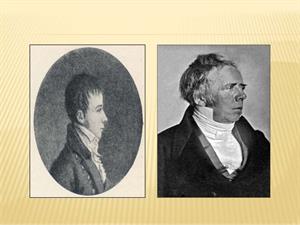
PUMPA - SMART LEARNING
எங்கள் ஆசிரியர்களுடன் 1-ஆன்-1 ஆலோசனை நேரத்தைப் பெறுங்கள். டாப்பர் ஆவதற்கு நாங்கள் பயிற்சி அளிப்போம்
Book Free DemoIn the \(19\)th century, one of the leading scientist, Hans Christian Oersted, played an important role in understanding the concept of Electromagnetism.

Hans Christian Oersted
In \(1820\), he accidentally found that a compass needle gets deflected when an electric current passed through a metallic wire placed nearby.
Through this observation, Oersted confirmed that electricity and magnetism were related phenomena. His research later produced technologies such as radio, television and fibre optics.
The unit of magnetic field strength is named after Oersted in his honour.
What is Electromagnetism?
Electromagnetism is a branch of physics. It deals with the study of electromagnetic force, a physical interaction between electrically charged particles.
The electromagnetic force is carried by electromagnetic fields comprised of electric and magnetic fields, responsible for electromagnetic radiation such as light.
The magnetic compass is a device that is used to locate the direction of a place.
It always rests in a north-south direction and is very helpful as a navigator in ships, submarines and aeroplanes.

Magnetic compass
Magnetic compass has a lightweight; magnetised pointer mounted on a low-friction pivot sealed inside a small plastic cylinder filled with liquid. The pointer is built into a rectangle of plastic called a compass card, printed with the cardinal points of the compass (North, South, East, and West) and the intercardinal points (Northeast, Northwest, Southeast, Southwest).
A compass needle acts as a small bar magnet. The ends of the compass needle point approximately towards North and South directions.
The end pointing towards the North is called North seeking or North pole. The other end that points towards the South are called South seeking or South pole.
Through various activities, we have observed that like poles repel, while unlike poles of magnets attract each other.
Reference:
https://commons.wikimedia.org/wiki/File:Hans-christian-oersted-.jpg
http://www.clker.com/clipart-234871.html